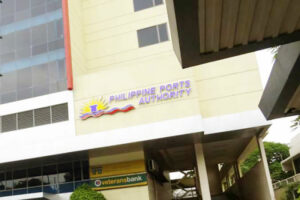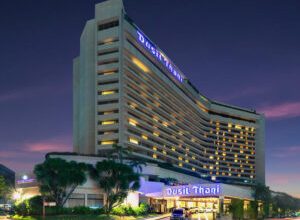My life in public service

I am deeply humbled and greatly honored by this recognition for my work, both in the public and private sectors, by the most prestigious business and management organization in the country. Thank you very much, MAP.
Allow me to briefly share my life in public service, both in the public and private sectors, and its contribution to nation building as I thank individuals and institutions that played essential roles for my being here today as the 48th MAP Management Person of the Year, which happens to be my birth year 1948. These individuals and institutions have shaped my values and principles on good governance, providing guidance and support along the way.
Allow me first to dedicate this award to my father, engineer Atanacio Singson, and my mother, Dra. Andrea Lazo Singson, for teaching me the values of simplicity, integrity, and honesty, daily prayers, and hard work. My father was a DPWH (Department of Public Works and Highways) District Engineer in Ilocos Sur who stood by his values and had to refuse a request of an influential member of the Commission on Appointments of Congress who also happened to be his cousin. And because of this conflict, he decided to resign and work with National Power Corp. (NPC) as a Lead Structural Engineer for NPC’s huge infrastructure projects, like the Ambuklao and Binga dams. My father worked hard, stood by his principles, and showed us how to live a simple life.
I would like to thank the Responsible Parenthood Council, headed by the late Horacio Boy Morales, and the Development Academy of the Philippines (DAP), headed by Dr. Onofre D. Corpuz and Executive Director Boy Mo-rales, for introducing me to grass roots community development work which I found more fulfilling as a fresh graduate from UP College of Engineering in 1971, instead of joining the corporate world. Upon the recommendation of my then immediate boss, Atty. Milton Mendoza, I was appointed as the first Resident Manager of DAP Tagaytay Training Center when it was officially inaugurated by then President Ferdinand Marcos in 1974. There I learned to deal with high-ranking government officials attending the 13-week live-in Career Executive Development Program and other live-in management programs and made sure that participants were kept happy, busy, and com-fortable with our spartan accommodations.
In DAP Tagaytay, I met Jose “Ping” de Jesus, a person who would have a profound influence in all of my work in the public sector. As DAP Senior VP, Ping de Jesus, known as JPJ, was running the organization and manage-ment development program while I was running the training center facilities.
GOAL WAS TO RETIRE AT AN EARLY AGE OF 40My goal in life then was to retire at an early age of 40, so I left DAP and decided to become an OFW in the Middle East as part of the CDCP/Ultra Overseas Team so that I could earn in US dollars. Indeed, I was able to retire be-fore 40 with my dollar savings. I did retire at 38, constructed our retirement home in Baguio. But that was not going to go my way. The Lord had different plans.
Here again for some “divine” intervention, Sec. Ping de Jesus asked me to rejoin government while enjoying my short-lived early retirement in Baguio. I did eventually join, sometime late 1986, Sec. Ping de Jesus and another mentor, Usec. Chito Sobrepeña, in the Office of the Cabinet Secretary of President Corazon C. Aquino. My assignment at the Office of the President, included supporting the Office of Special Concerns with Cabinet Secretary de Jesus and Usec. Sobrepeña in preparing for the official trips of President Cory to ensure that government services reached the furthest and poorest municipalities of the country. President Cory, on record, traveled to 54 prov-inces, from Batanes to Tawi-Tawi. This assignment meant traveling as an advance party to the provinces under very stressful and challenging circumstances, including sleeping on school tables or hospitals since we were deep into places without accommodations — I am referring to places then, like Tawi-Tawi, Basilan, GenSan, and Batanes. Some of them were being visited by a sitting Philippine President for the first time.
I was also assigned as Executive Director of the Coordinating Council of the Philippine Assistance Program (CCPAP), a joint program with the US government, which was tasked to implement the creation of special economic and development zones and key infra projects — Calabarzon, Pavia/Iloilo, Gensan Sea Port, among others — and the promotion of BOT/PPP (Build-Operate-Transfer/Public-Private-Partnership) projects.
Allow me to thank the late President Cory for my appointment to BCDA (Bases Conversion and Development Authority) as the Vice-Chair and its First EVP in 1992 when RA 7227 was passed creating the BCDA Act. We made significant progress in generating employment and economic growth through conversion projects of former US military base lands. Among the major projects which stand out today include Heritage Memorial Park as our first BCDA fund-raising project, the privatization of Camp John Hay and Poro Point, the privatization and re-development of Clark Air Base into what is now known as Clark Special Economic Zone and the Clark International Airport.
With the leadership of SBMA (Subic Bay Metropolitan Authority) Chair Dick Gordon and as a Board Member of SBMA, we were able to privatize several assets turned over by the US military in Subic.
But to me, our biggest contribution to our economic development was the privatization and development of Fort Bonifacio and the Villamor Air Base. I personally got involved, from negotiating and clearing informal settlers, in what was known as Imelda Park, which was around the American battle monument, where most of the past army generals and chiefs of staff lived, and the nearby Palar Villages. In all these resettlement activities, we made sure that the relocation was done with fairness, compassion, and providing a reasonable and acceptable relocation for all affected families, be it a general or just a master sergeant living in the Palar areas along C5. This led to the development of Kalayaan Military Village, Villamor Housing, Centennial Village, and Diego Silang Housing, among others.
‘REAL ESTATE DEAL OF THE CENTURY’The privatization of 214 hectares of Fort Bonifacio, known as the “real estate deal of the century,” with the winning group led by the Metro Pacific Consortium raised for government P30.4 billion. I believe the government received the biggest check payment of P19.6 billion as a down payment for that successful bidding of Bonifacio Global City (BGC). Thank you to the professional management team of BCDA and the BCDA Board who embraced good governance in all of our privatization undertakings.
From BCDA, in 1996, I joined the BCDA joint venture company with the Metro Pacific Consortium, the Fort Bonifacio Development Corp. (FBDC) as Senior VP in charge of infrastructure development of BGC, together with Mr. Charlie Rufino. At FBDC, I got directly involved with the help of our US-based urban planners and consultants, in the implementation of the upscale urban development of BGC — using for the first time in the country — floor area ratios, GIS (Geographic Information System) for all underground utilities, deed of restrictions handbook for all the lot buyers and owners which has created long-term value to BGC properties up to today.
In July 1998, President Erap Estrada appointed me back as Chair and President of BCDA to pursue more privatization and PPP projects using former military base lands and assets. I was told that President Erap wanted me back at BCDA because of the transparent and successful biddings of Fort Bonifacio military lands. From there, we continued to do more conversion projects to complete the master plans of all the base lands transferred to BCDA.
Another individual that I would like to thank is a former colleague in the Office of the Cabinet Secretary, Usec. Chito Sobrepeña, who invited me to join the community where I still belong, Ang Ligaya ng Panginoon (LNP), a family-based covenant community. After regularly attending the breakfast meetings of the Brotherhood of Christian Businessmen and Professionals (BCBP), “sabi siguro ni Chito, may pag-asa pa ito si Mr. Singson” (I guess Chito said, there is hope yet for Mr. Singson). After going through formation programs as a member of LNP, I eventually became a District Coordinator of LNP.
Fast forward [a few years], while attending an LNP Coordinators Retreat sometime in May 2010, I clearly remember the first day of our retreat. I got a call from a member of the selection committee of incoming President Noynoy Aquino (P-Noy), asking if I would be open to being considered as Secretary of DPWH. I told the caller — I believe it was Cesar Buenaventura — that I was in a retreat and I said I will pray about it. His immediate answer was, “I know our prayers will be answered.” [In a] coincidence, the theme of our retreat, led by Fr. Herb Sneider of the Loyola School of Theology, was on heroic leadership and becoming radical disciples for our Lord. With proper discernment and prayers, the community leadership with Senior Head Coordinator Mr. Tony Panajon and Spanky Meer, they gave their full support that I should be open to taking on the job of DPWH Secretary as a mis-sion field to being a radical disciple for love of God and service to fellowmen.
And again for some reason, the Bible reflection on the day P-Noy interviewed me for the first time was the reading from Matthew: “enter the narrow gate for the road to life is narrow and difficult.” At that point, what was much clearer than the message of “entering the narrow gate and following the narrow road” was the clear message for me to accept the government position. Of course, I had to consult and inform my wife, Binggay, and my family of this major decision. My daughter Nikka’s response was “are you crazy?” to accept.
VALUE OF LOVE FOR GOD AND SERVICE TO FELLOWMENSo, my acceptance of the most challenging job in public service was based on the value of love for God and service to fellowmen. I knew my life in DPWH would be challenging, [with] long working days, a very huge pay cut coming from Maynilad as President. I even had to sell my Alabang Golf membership to augment my government salary. Knowing that DPWH was always in the [list of the] top three most corrupt government agencies prior to 2010 was my biggest challenge. Allow me to thank my brothers and sisters and the leadership of LNP for their guidance, and especially their prayers, during my full six challenging years with DPWH.
After Malacañang announced that I was the incoming DPWH Secretary, I asked a good friend, Ms. Yolly Villanueva Ong, to do a survey for me to know what the general public expected from the DPWH. The survey results showed that people simply expected that government funds and resources be used for the right projects, at the right cost and right quality. So, I made it very clear in our first DPWH ManCom meeting that we had to change the culture of DPWH and, with the help of some members of the DPWH ManCom, draw up our good governance and anti-corruption measures.
We developed our management mantra and strategic objectives of the 3Rs — Right projects, Right cost, and Right quality. Eventually, P-Noy added the 2 Rs — Right on time and by the Right people. Part of changing the cul-ture of DPWH was offering early retirement to about 25% of the employees and replacing them with young, qualified, registered civil engineers below 30 years old. We hired about 1,500 nationwide, and offered them a career in DPWH with regular plantilla positions and the salary equivalent of $600/month, instead of them going abroad as contractual personnel.
This award is not just a recognition of my efforts, but a testament to the commitment of the late P-Noy to his Daang Matuwid (Straight Path) way of governance in serving the country. Let me quote, P-Noy said — “no wangwang (sirens), no entitlements; kung walang corrupt, walang mahirap (if there are no corrupt people, there will be no poor people); kayo ang boss ko (you are my boss).” I had P-Noy’s full support in the transformation of the DPWH to become the lead infrastructure arm of the government. The Philippines got its highest rating ever in the 2014 Transparency International rating in the corruption perception index.
With the help of DBM (Department of Budget and Management) Secretary Butch Abad and the full support of other department secretaries, we were able to implement our infrastructure convergence program, developing infrastructure, roads and bridges, using national road standards to major tourism destinations of our country as prioritized by the late DoT (Department of Tourism) Secretary Mon Jimenez. For tourism convergence, we were able to complete 2,500 kms of tourism roads worth P84 billion.
Thanks to DepEd (Department of Education) Secretary Bro. Armin Luistro, who entrusted to DPWH the construction of the school buildings, and where we instituted for the first time PPP for school buildings to be able to wipe out the DepEd classrooms backlog; to Secretary Mar Roxas and Secretary Jun Abaya for national road standards leading to airports and seaports; and to Secretary Cesar Purisima and NEDA (National Economic and Devel-opment Authority) Secretary Arsi Balisacan for supporting our PPP projects, like CALAX, the NLEX Connector, the NAIA Expressway, the Cebu Cordova Bridge, and the Skyway, among others. We also started other convergence programs on flood control projects, too many to mention, based on river basin master plans and integrated water resources management (IWRM) principles and introducing the use of bio-engineering solutions. In the process, because of competitive public bidding, we were able to save the government several billion pesos. Thank you to Cabinet Secretary Rene Almendras who was very much in the thick of the transformation.
With the guidance of the Institute for Solidarity in Asia (ISA), we adopted in DPWH their performance governance system scorecard to ensure that we were moving in the right direction and that our achievements were measurable. And with the full support of the whole DPWH family, we were able to measure up to ICD standards and were awarded the highest gold trailblazer award. Thank you to Dr. Jess Estanislao and Rex Drilon for helping us and believing that we could change the culture of DPWH. And of course, thank you to the professionals and career personnel, especially the cadet engineers of DPWH, who believed that we could indeed change the culture and public perception of DPWH by supporting our good governance and anti-corruption program.
PUBLIC SERVICE OPERATING UNDER A PRIVATE ENTITYIn most of my assignments in the private sector, I have to thank Metro Pacific Investments Corp. (MPIC) Chair Manuel V. Pangilinan, for my appointments as presidents of Maynilad Water Services, Light Rail Manila Corp., Meralco MGen Power, Metro Pacific Water Investments, and, until recently, Metro Pacific Tollways Corp. In all these assignments, I made sure that we focused on the public service aspect of our plans and programs and our contribution to nation building. I emphasized that we are in public service operating under a private entity. We made sure that we addressed the needs and pain points of our customers and communities that we served. I was lucky to have very professional business unit heads and key officers, like NLEX President engineer Luigi Bautista, who is also the National President of Familia, a family-based church organization, who took care of the spiritual needs of North Luzon Expressway employees.
At my age of 76, I have been blessed with good health and able to live a balanced life — spiritually, mentally, physically, and in my social life. I still have my daily exercises, play golf on weekends whenever possible, go seri-ous ballroom dancing, and I will continue my advocacy for good governance and anti-corruption measures, particularly in addressing the country’s water crisis.
I wish and hope that some of my experiences and principles in good governance and anti-corruption measures based on hard work, political will, transparency, accountability, and citizens/stakeholders participation will in-spire our NextGen and Gen Z future leaders for a better future for all Filipinos.
In closing, I want to express my heartfelt gratitude to the MAP Board of Governors and the MAP members for this prestigious award which I also share with my sweetheart of over 54 years, Binggay Nepomuceno Singson, our daughter Nikka and husband attorney Jorge Abes with our apo (grandson) Rafa, our sons Patrick, Gilbert, and Edu, their spouses and our apos, and my close friends, some of whom are present here today, for helping me in my journey dedicated to a life of public service, for love of God and service to fellowmen. To God be the glory.
Rogelio “Babes” L. Singson is president and CEO of Metro Pacific Tollways Corp. Send feedback to map@map.org.ph and rlsingson@mptc.com.ph




